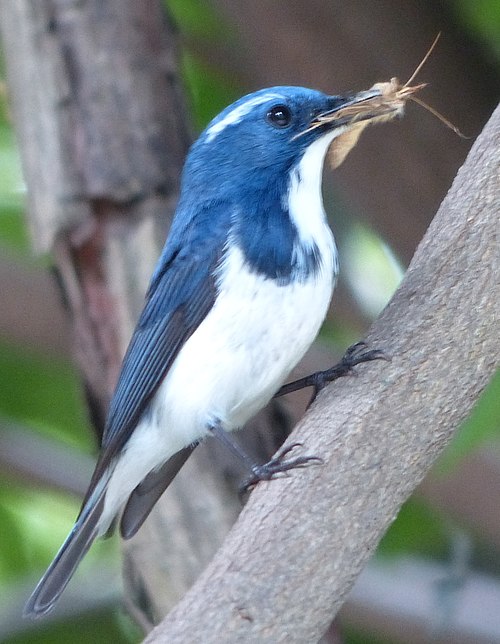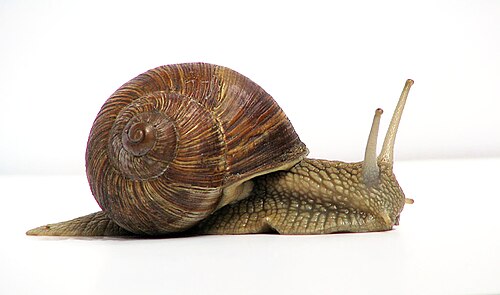Animalnoun
In scientific usage, a multicellular organism that is usually mobile, whose cells are not encased in a rigid cell wall (distinguishing it from plants and fungi) and which derives energy solely from the consumption of other organisms (distinguishing it from plants).
Animalnoun
In non-scientific usage, any member of the kingdom Animalia other than a human.
Animalnoun
In non-scientific usage, any land-living vertebrate (i.e. not fishes, insects, etc.).
Animalnoun
(figuratively) A person who behaves wildly; a bestial, brutal, brutish, cruel, or inhuman person.
Animalnoun
(informal) A person of a particular type.
Animalnoun
, thing.
Animaladjective
Of or relating to animals.
Animaladjective
Raw, base, unhindered by social codes.
Animaladjective
Pertaining to the spirit or soul; relating to sensation or innervation.
Animaladjective
Excellent
Animalnoun
An organized living being endowed with sensation and the power of voluntary motion, and also characterized by taking its food into an internal cavity or stomach for digestion; by giving carbonic acid to the air and taking oxygen in the process of respiration; and by increasing in motive power or active aggressive force with progress to maturity.
Animalnoun
One of the lower animals; a brute or beast, as distinguished from man; as, men and animals.
Animaladjective
Of or relating to animals; as, animal functions.
Animaladjective
Pertaining to the merely sentient part of a creature, as distinguished from the intellectual, rational, or spiritual part; as, the animal passions or appetites.
Animaladjective
Consisting of the flesh of animals; as, animal food.
Animalnoun
a living organism characterized by voluntary movement
Animaladjective
of the appetites and passions of the body;
Animaladjective
of the nature of or characteristic of or derived from an animal or animals;
Animalnoun
a living organism that feeds on organic matter, typically having specialized sense organs and nervous system and able to respond rapidly to stimuli
Animalnoun
an animal as opposed to a human being
Animalnoun
a mammal, as opposed to a bird, reptile, fish, or insect
Animalnoun
a person without human attributes or civilizing influences, especially someone who is very cruel, violent, or repulsive
Animalnoun
a particular type of person or thing
Animaladjective
relating to or characteristic of animals
Animaladjective
of animals as distinct from plants
Animaladjective
characteristic of the physical and instinctive needs of animals; of the flesh rather than the spirit or intellect
Animaladjective
relating to or denoting the pole or extremity of an embryo that contains the more active cytoplasm in the early stages of development.
Animal
Animals (also called Metazoa) are multicellular, eukaryotic organisms in the biological kingdom Animalia. With few exceptions, animals consume organic material, breathe oxygen, are able to move, can reproduce sexually, and go through an ontogenetic stage in which their body consists of a hollow sphere of cells, the blastula, during embryonic development.
Plantnoun
(botany) An organism that is not an animal, especially an organism capable of photosynthesis. Typically a small or herbaceous organism of this kind, rather than a tree.
Plantnoun
(botany) An organism of the kingdom Plantae; now specifically, a living organism of the Embryophyta (land plants) or of the Chlorophyta (green algae), a eukaryote that includes double-membraned chloroplasts in its cells containing chlorophyll a and b, or any organism closely related to such an organism.
Plantnoun
(ecology) Now specifically, a multicellular eukaryote that includes chloroplasts in its cells, which have a cell wall.
Plantnoun
Any creature that grows on soil or similar surfaces, including plants and fungi.
Plantnoun
A factory or other industrial or institutional building or facility.
Plantnoun
An object placed surreptitiously in order to cause suspicion to fall upon a person.
Plantnoun
Anyone assigned to behave as a member of the public during a covert operation (as in a police investigation).
Plantnoun
A person, placed amongst an audience, whose role is to cause confusion, laughter etc.
Plantnoun
(snooker) A play in which the cue ball knocks one (usually red) ball onto another, in order to pot the second; a set.
Plantnoun
(uncountable) Machinery, such as the kind used in earthmoving or construction.
Plantnoun
(obsolete) A young tree; a sapling; hence, a stick or staff.
Plantnoun
(obsolete) The sole of the foot.
Plantnoun
A plan; a swindle; a trick.
Plantnoun
An oyster which has been bedded, in distinction from one of natural growth.
Plantnoun
A young oyster suitable for transplanting.
Plantverb
(transitive) To place (a seed or plant) in soil or other substrate in order that it may live and grow.
Plantverb
(transitive) To place (an object, or sometimes a person), often with the implication of intending deceit.
Plantverb
(transitive) To place or set something firmly or with conviction.
Plantverb
To place in the ground.
Plantverb
To furnish or supply with plants.
Plantverb
To engender; to generate; to set the germ of.
Plantverb
To furnish with a fixed and organized population; to settle; to establish.
Plantverb
To introduce and establish the principles or seeds of.
Plantverb
To set up; to install; to instate.
Plantnoun
A vegetable; an organized living being, generally without feeling and voluntary motion, and having, when complete, a root, stem, and leaves, though consisting sometimes only of a single leafy expansion, or a series of cellules, or even a single cellule.
Plantnoun
A bush, or young tree; a sapling; hence, a stick or staff.
Plantnoun
The sole of the foot.
Plantnoun
The whole machinery and apparatus employed in carrying on a trade or mechanical business; also, sometimes including real estate, and whatever represents investment of capital in the means of carrying on a business, but not including material worked upon or finished products; as, the plant of a foundry, a mill, or a railroad.
Plantnoun
A plan; an artifice; a swindle; a trick.
Plantnoun
An oyster which has been bedded, in distinction from one of natural growth.
Plantverb
To put in the ground and cover, as seed for growth; as, to plant maize.
Plantverb
To set in the ground for growth, as a young tree, or a vegetable with roots.
Plantverb
To furnish, or fit out, with plants; as, to plant a garden, an orchard, or a forest.
Plantverb
To engender; to generate; to set the germ of.
Plantverb
To furnish with a fixed and organized population; to settle; to establish; as, to plant a colony.
Plantverb
To introduce and establish the principles or seeds of; as, to plant Christianity among the heathen.
Plantverb
To set firmly; to fix; to set and direct, or point; as, to plant cannon against a fort; to plant a standard in any place; to plant one's feet on solid ground; to plant one's fist in another's face.
Plantverb
To set up; to install; to instate.
Plantverb
To perform the act of planting.
Plantnoun
buildings for carrying on industrial labor;
Plantnoun
a living organism lacking the power of locomotion
Plantnoun
something planted secretly for discovery by another;
Plantnoun
an actor situated in the audience whose acting is rehearsed but seems spontaneous to the audience
Plantverb
put or set (seeds or seedlings) into the ground;
Plantverb
fix or set securely or deeply;
Plantverb
set up or lay the groundwork for;
Plantverb
place into a river;
Plantverb
place something or someone in a certain position in order to secretly observe or deceive;
Plantverb
put firmly in the mind;
Plantnoun
a living organism of the kind exemplified by trees, shrubs, herbs, grasses, ferns, and mosses, typically growing in a permanent site, absorbing water and inorganic substances through its roots, and synthesizing nutrients in its leaves by photosynthesis using the green pigment chlorophyll.
Plantnoun
a small plant, as distinct from a shrub or tree
Plantnoun
a place where an industrial or manufacturing process takes place
Plantnoun
machinery used in an industrial or manufacturing process
Plantnoun
a person placed in a group as a spy or informer
Plantnoun
a thing put among someone's belongings to incriminate or compromise them.
Plantnoun
a shot in which the cue ball is made to strike one of two touching or nearly touching balls with the result that the second is potted.
Plantverb
put (a seed, bulb, or plant) in the ground so that it can grow
Plantverb
cover or supply (an area of land) with plants
Plantverb
place a plant in the ground out of doors so it can grow, especially after growing it from seed in an indoor environment
Plantverb
bury (someone)
Plantverb
set or place in a particular position
Plantverb
establish (an idea) in someone's mind
Plantverb
secretly place (a bomb that is set to go off at a later time)
Plantverb
put or hide (something) among someone's belongings to compromise or incriminate the owner
Plantverb
send (someone) to join a group or organization to act as a spy or informer
Plantverb
found or establish (a colony, city, or community)
Plantverb
deposit (young fish, spawn, oysters, etc.) in a river or lake.
Plant
Plants are mainly multicellular organisms, predominantly photosynthetic eukaryotes of the kingdom Plantae. Historically, plants were treated as one of two kingdoms including all living things that were not animals, and all algae and fungi were treated as plants.



















































